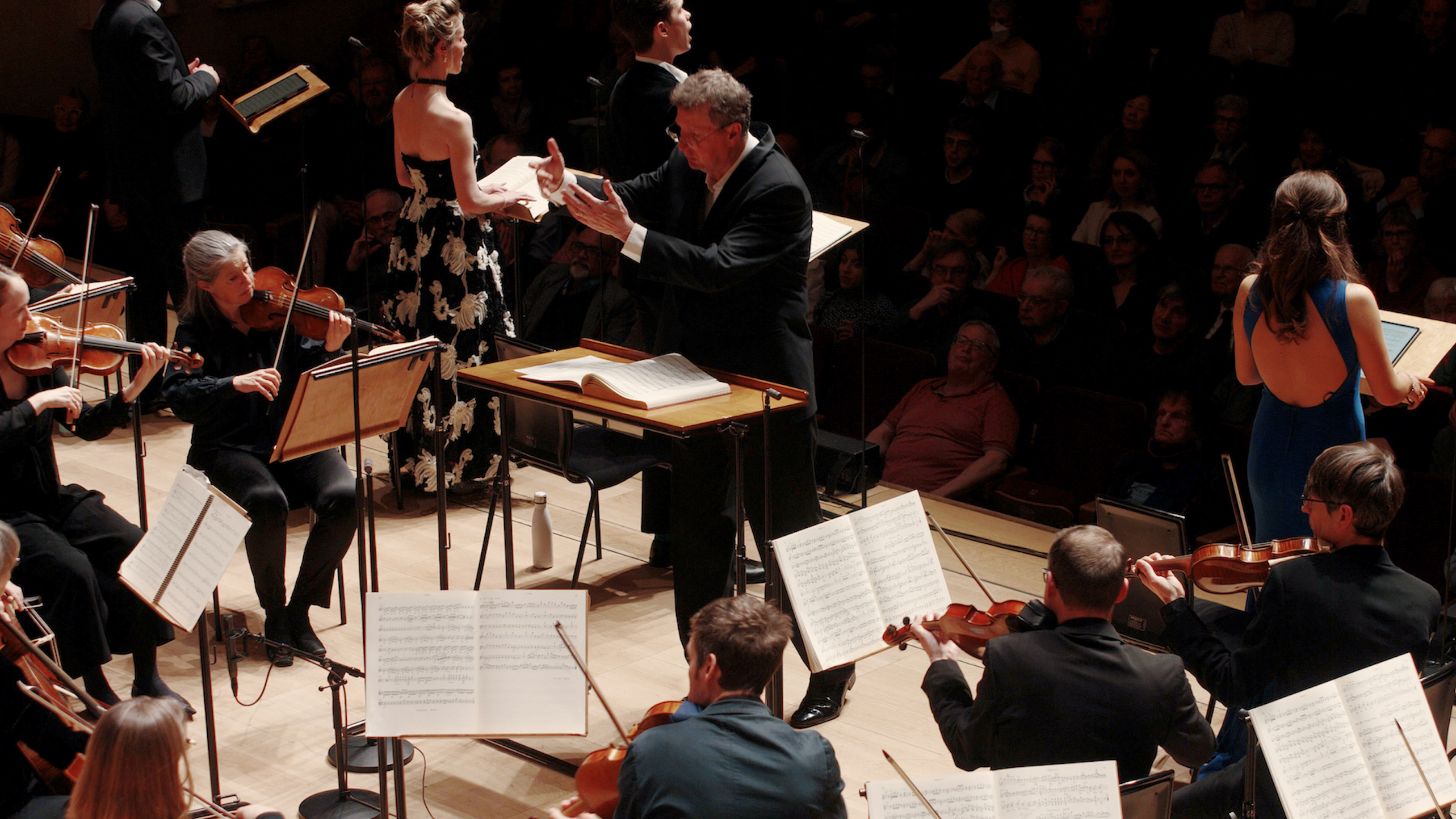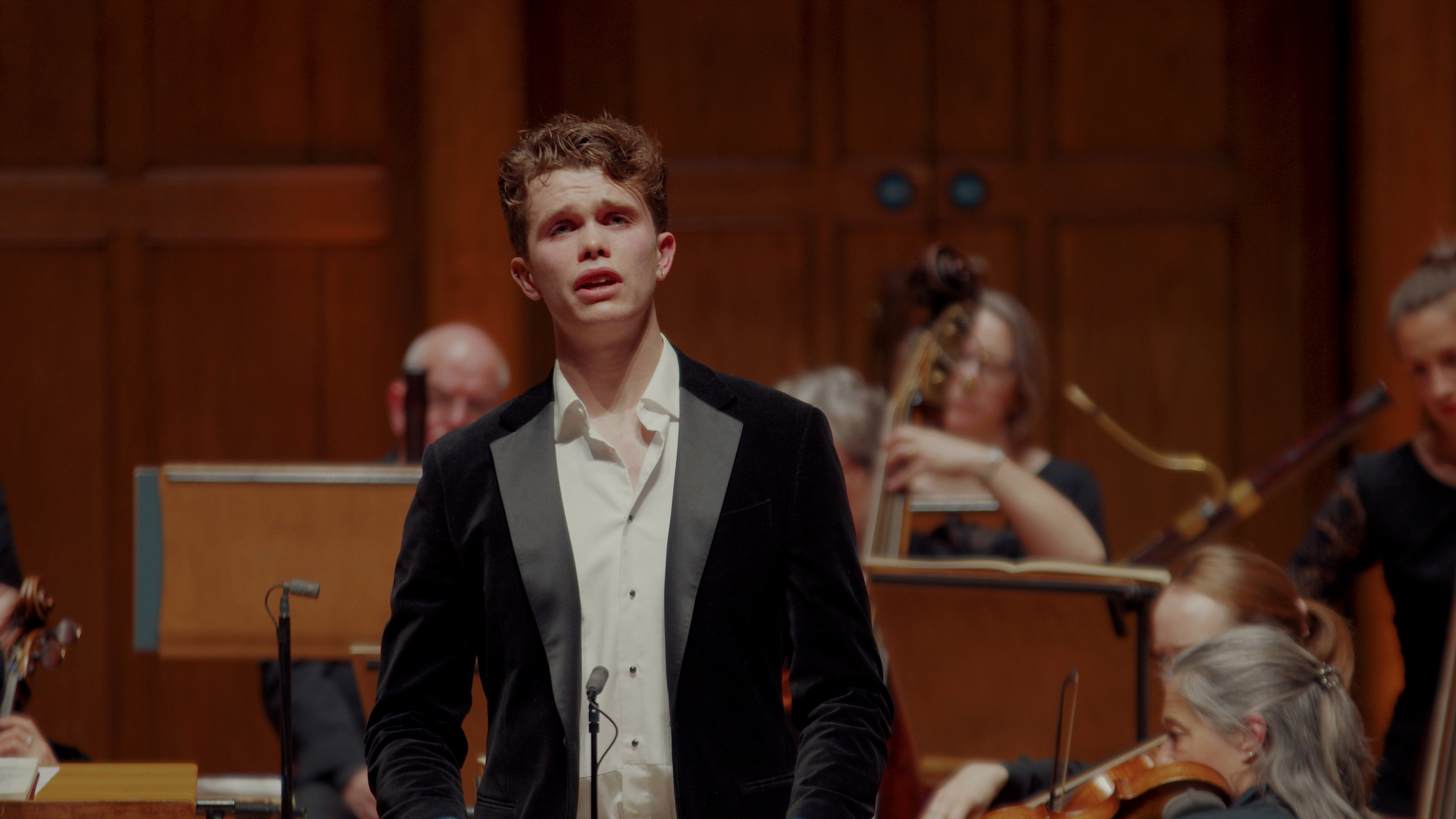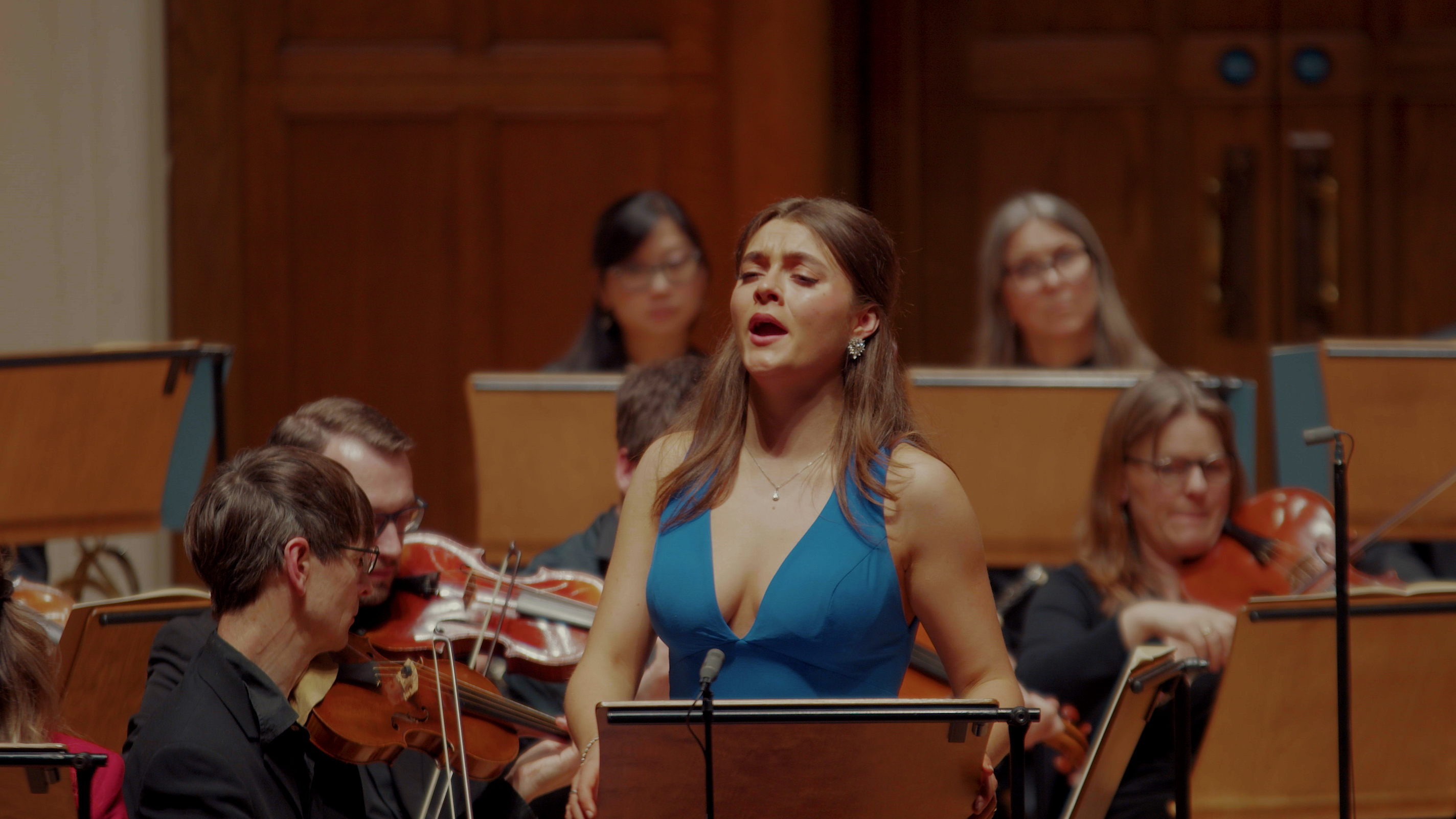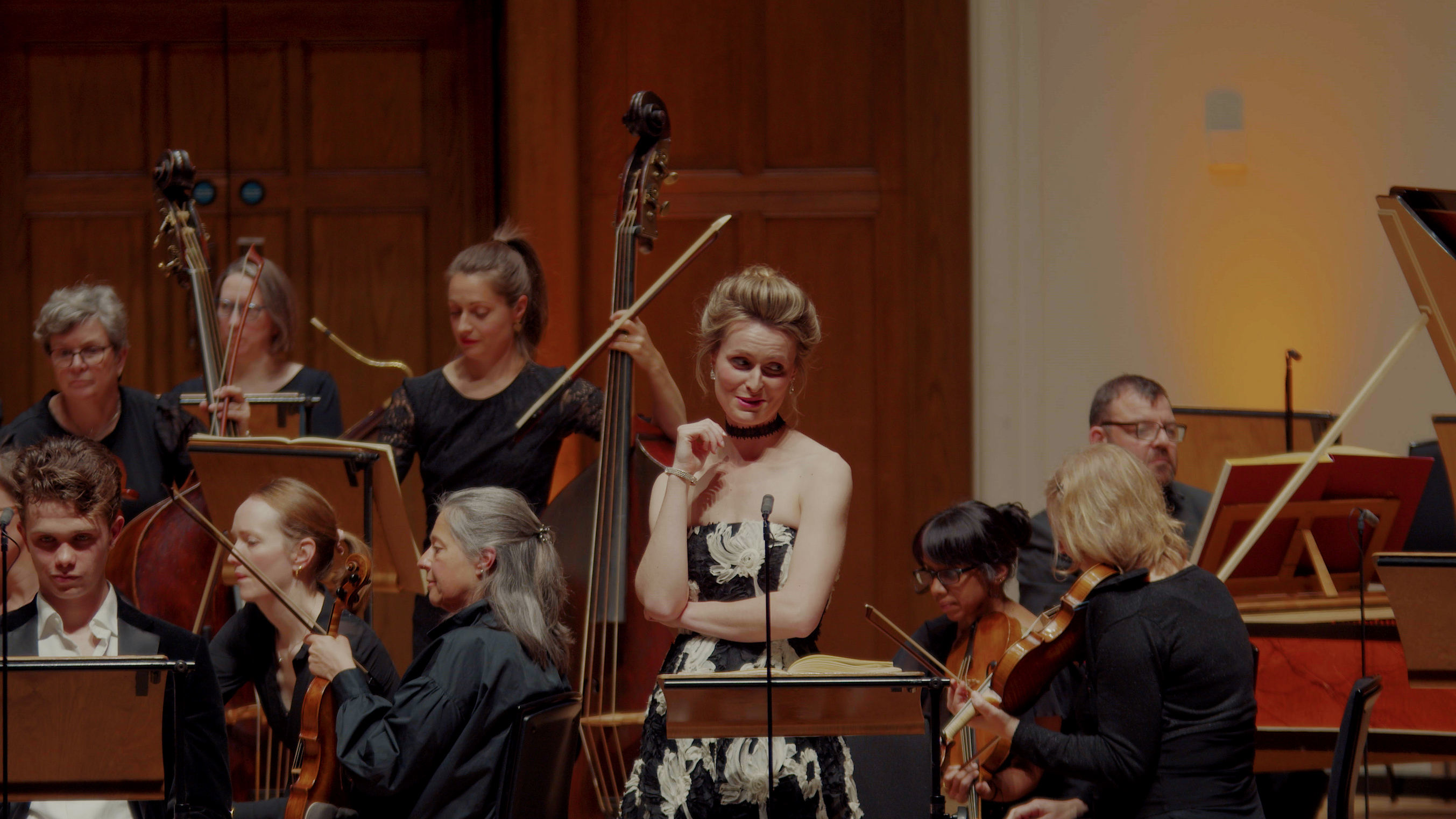Just now, the notion of a long-term project that concludes in 2041 sounds like an optimistic bet on the far future worthy of some 18th-century Enlightenment philosophe – Voltaire’s Dr Pangloss, maybe. The musicians of The Mozartists are clearly hoping for the best in the best of all possible worlds, as their MOZART250 programme ambitiously tracks, in annual increments, the music that Wolfgang Amadeus wrote exactly 250 years ago.
We’ve reached 1775, and thus last night saw a concert performance at Cadogan Hall of La finta giardiniera, written by already-accomplished late-teenager for the Munich court and, in fact, his last comic opera before The Marriage of Figaro. Figaro it is not. “The Pretend Garden Girl”, with its ludicrously contorted sequence of amorous reversals and even a scene when the maddened hero and heroine dream themselves into Greek mythology, would run strongly in any world championship of silly opera plots. I’ve never seen it live before – and all credit to The Mozartists for creating this rare opportunity – but the record suggests that productions focus on the gorgeous pre-echoes of mature operatic Mozart (Figaro, Così fan tutte, even a dash of The Magic Flute) while trying to lend the action some semblance of sense.
In a way, a concert staging – with the cast of seven singers lined up in front of the period-instrument orchestra (pictured below) – simplifies matters by bringing the music to the fore. Freed of the need to visualise (say) the lurching Act Two transition from estate gardens to a craggy forested mountainside, we can sit back and enjoy Mozart flexing his melodic muscles, and (above all) learning to craft sophisticated vocal, and emotional, dialogue, from rapt duets to a pair of intricate sextets.  That said, the unvarying stand-up-and-sing presentation did sometimes make the tangled longueurs of the evening feel longer still. Dear reader, believe me that you don’t want a twist-by-twist synopsis, but (briefly) the Podesta – Mayor – Don Anchise has employed in his gardens one “Sandrina”, the disguised Marchioness Violante (along with her servant Nardo, also in disguise). A year ago her suitor Count Belfiore stabbed her, but she has recovered. Now Belfiore is betrothed to the Podesta’s niece Arminda, who is still pursued by her rejected suitor, Ramiro. Meanwhile, the Podesta’s maid Serpetta carries a flame for her boss...
That said, the unvarying stand-up-and-sing presentation did sometimes make the tangled longueurs of the evening feel longer still. Dear reader, believe me that you don’t want a twist-by-twist synopsis, but (briefly) the Podesta – Mayor – Don Anchise has employed in his gardens one “Sandrina”, the disguised Marchioness Violante (along with her servant Nardo, also in disguise). A year ago her suitor Count Belfiore stabbed her, but she has recovered. Now Belfiore is betrothed to the Podesta’s niece Arminda, who is still pursued by her rejected suitor, Ramiro. Meanwhile, the Podesta’s maid Serpetta carries a flame for her boss...
Assymetrical amours, passion as delusion or as devotion, smart servants and dumb patricians, male arrogance and force (let that preliminary stabbing, so casually invoked, sink in) versus female resourcefulness and resilience: yes, you can taste, and hear, the seeds of some Da Ponte-scripted masterwork at various points. But Mozart does not yet hold a functional dramatic key to the puzzle – although often the music sounds a lot more mature than the lyrics, and the actions, that it sets. Its harmonies already reach into realms closed to the words.  The singers, and the musicians of The Mozartists with conductor (and founder) Ian Page, did their utmost to make the fragments cohere and bring order to the muddle. Matthew Truscott led a period ensemble marked by spirited accents, frequent polish and refinement, and a relish for the scoring that sees flutes, oboes, bassoons and (especially in the final stages) formidable horns add colour and character to the vocal lines. Page’s careful direction brought clarity and detail to the imbroglio and the surtitles – crucial for such a convoluted piece, with no stage business to help – guided us through the maze.
The singers, and the musicians of The Mozartists with conductor (and founder) Ian Page, did their utmost to make the fragments cohere and bring order to the muddle. Matthew Truscott led a period ensemble marked by spirited accents, frequent polish and refinement, and a relish for the scoring that sees flutes, oboes, bassoons and (especially in the final stages) formidable horns add colour and character to the vocal lines. Page’s careful direction brought clarity and detail to the imbroglio and the surtitles – crucial for such a convoluted piece, with no stage business to help – guided us through the maze.
But the seven young singers, without any scope for significant movement, had to shoulder the principal burden of making character and feeling live. All showed an impressive commitment to both intelligibility and expressivity: if sections could drag, blame the scattergun approach of this bloated apprentice work. For me, Hugo Brady’s Count Belfiore (pictured above) did best of all, his silken but robust tenor in arias such as “Che beltà, che leggiadria” or “Care pupille” matched by a host of effective dramatic touches that fleshed out the role. La finta requires you to drop any search for psychological consistency (did this ardent romantic lead really stab his lover?) and just appreciate the moment, the scene, and the relationships we see.  As Sandrina, wounded aristocrat turned gardener, Ava Dodd (pictured above) had an emphatic intensity, even asperity, that eventually made a fine foil for Brady: not so much the rough – she never was – as the edgy, even prickly, against the smooth and suave. Her forthright characterisation lent real bite to a number such as “Noi Donne poverine”, although the beautifully wistful cavatina “Geme la tortorella” felt almost too defiant. But the contrast in tone with Brady made their later duets spark and smoulder, as Sandrina holds out (“I am not your immortal beloved”) almost to the end.
As Sandrina, wounded aristocrat turned gardener, Ava Dodd (pictured above) had an emphatic intensity, even asperity, that eventually made a fine foil for Brady: not so much the rough – she never was – as the edgy, even prickly, against the smooth and suave. Her forthright characterisation lent real bite to a number such as “Noi Donne poverine”, although the beautifully wistful cavatina “Geme la tortorella” felt almost too defiant. But the contrast in tone with Brady made their later duets spark and smoulder, as Sandrina holds out (“I am not your immortal beloved”) almost to the end.
Laura Fleur’s Ramiro – a mezzo breeches role now, originally written for a castrato – had a swaggering strength that could soften into genuine injured grace (for instance in “Va puri ad altri in braccio”), while Camilla Harris’s Arminda, in a sketchy drawn role, still managed to give presence and power to her numbers, notably the lament about the flighty lovers of today (“Si promette facilmente”). Michael Bell, as the Podesta himself, has an even more thankless role as blustering (and bewildered) MC of the entire shambolic business, but brought to it a droll gravity. Much of the real fun, however, comes from the cheeky conniving servants. Both Milly Forrest’s sly, tough Serpetta (pictured below) and Jerome Knox’s Nardo sang with force and flavour, and properly inhabited their parts. Indeed, Nardo has a show-stealing number where he practises wooing in three languages – Italian, French, English.  Such passages mostly make up for the baffling switches of motive and behaviour and the cavalier disregard of continuity. As, above all, do the climactic act-ending ensembles. Finely sung and paced, they let us hear the germ of Mozart’s genius for interwoven unity-in-diversity that would ripen a decade later. Page, The Mozartists and their singers deserve hosannas for letting La finta giardiniera flourish again, and not just as a hothouse curiosity of purely scholarly interest. This garden may still look like a big, unwieldy mess, but in it thrive a bunch of lovely blooms.
Such passages mostly make up for the baffling switches of motive and behaviour and the cavalier disregard of continuity. As, above all, do the climactic act-ending ensembles. Finely sung and paced, they let us hear the germ of Mozart’s genius for interwoven unity-in-diversity that would ripen a decade later. Page, The Mozartists and their singers deserve hosannas for letting La finta giardiniera flourish again, and not just as a hothouse curiosity of purely scholarly interest. This garden may still look like a big, unwieldy mess, but in it thrive a bunch of lovely blooms.















Add comment